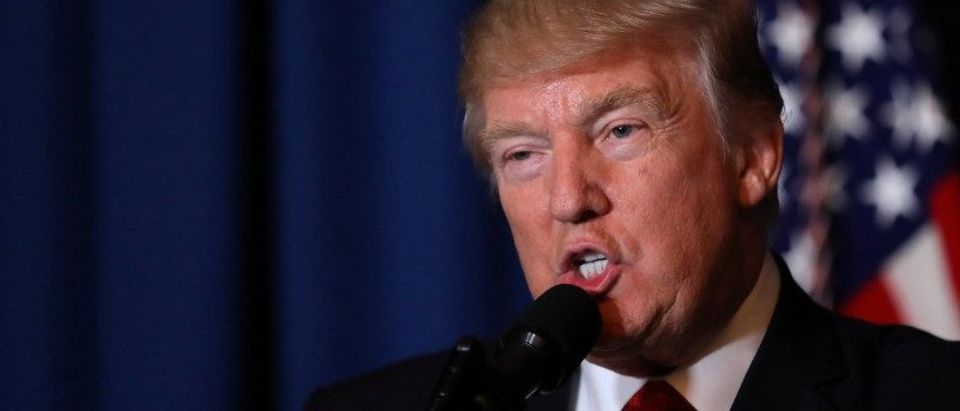After years of impotent sermonizing on Syria by the Obama Administration, the U.S. has taken an important step to reestablish its credibility in the Middle East and beyond. A mere two days after Syrian President Bashar al-Assad killed at least 70 of his own people with poison gas—including many children—President Trump ordered a cruise missile strike on the airbase from which Assad launched his attack. Over 50 Tomahawk missiles bombarded Shayrat Airfield shortly after President Trump bade goodnight to his dinner guest at Mar-a-Lago, Chinese President Xi Jinping. The U.S. strike will loom large over President Xi’s important first meeting with President Trump, and add an edge to U.S. demands that China rein in North Korea.
The Trump Administration’s bold move will be mischaracterized as an abrupt about-face. After all, it was just a week ago that Secretary of State Rex Tillerson and U.S. Ambassador to the UN Nikki Haley both signaled that regime change in Syria was no longer a priority. Those signals reflected the Trump Administration’s desire to have a constructive relationship with Russia, Assad’s sponsor, and out of the reality that jihadists are currently the most likely alternative to Assad.
Assad’s chemical attack days later was not only an unspeakably cruel atrocity against innocent civilians, it was a slap in America’s face. Assad could have taken the Trump Administration’s recent remarks as an opportunity for constructive engagement. Instead, he apparently believed it was an opportunity to commit yet another act of savagery against his people.
Assad’s arrogant miscalculation was a game-changer. It suggested that Assad may have somehow believed that Team Trump was giving him an implied green light to resume his barbaric attacks against Syrian civilians. It thus became incumbent upon the Trump Administration to disabuse Assad—and everyone else—of that notion.
In an emergency meeting of the UN Security Council on Wednesday, Haley denounced the attack as a “disgrace at the highest level.” She then stared down the Russian ambassador, asking: “How many more children have to die before Russia cares?” Tillerson also kept the heat on Russia, urging the Kremlin to rethink its support of Syria.
And Trump quickly confirmed that his subordinates were accurately reflecting his views: “What happened yesterday is unacceptable to me,” he said, adding that it “crossed a lot of lines for me.” Trump’s language was of course reminiscent of Obama’s 2012 declaration that Assad’s use of chemical weapons would cross a “red line,” which Obama implied would trigger a U.S. military response. Obama was of course roundly criticized, including by Trump, for damaging U.S. credibility and prestige by making a threat that ultimately proved empty. In that context, many concluded that Trump would not have evoked Obama’s reference to “lines” unless he intended to respond militarily.
Haley dropped a similar hint in her address to the Security Council: “When the United Nations consistently fails in its duty to act collectively, there are times in the life of states that we are compelled to take our own action.” And in contrast to Samantha Power’s incessant, futile moralizing at the UN during the Obama Administration, Haley’s tough talk was quickly backed up by Trump’s tough action.
Many people who supported Trump during the campaign, myself included, shared his reluctance to get the U.S. involved in needless wars. These supporters should not interpret Trump’s action as a retreat from that posture. This was a limited action. The risk of escalation certainly exists, but it is also limited—and hopefully outweighed by the likely benefits of the retaliation. The principal benefit is confirming to the world that Trump, unlike Obama, is willing to act boldly to protect American interests and prestige.
The world’s tyrants did not take Obama seriously; he was all talk (and lots of it). Trump has now shown that he is much less of a talker in matters of war and peace—but that our adversaries must take his words seriously. Where Obama was dithering, Trump is decisive. And Trump has proven to be unpredictable in ways that should keep our rivals off balance. If fortune indeed favors the bold, our fortunes on the world stage will be brighter under Trump than they were under Obama.
Trump is thus in a good position to start repairing the damage that Obama did in the Middle East, where our enemies came to no longer fear us and our friends came to no longer trust us. Our Middle East failures had ramifications across the globe, since our fecklessness there was noted everywhere—including in Pyongyang. And while Kim Jong Un may be immune to rationality, the leaders of China, who ultimately allow Kim’s regime to survive, are not. President Xi will have much to contemplate on his long flight home.
This strike is not evidence that Trump has suddenly gone “neocon,” in search of “endless wars.” It is evidence that he has some Reagan in him, and understands the value of peace through strength. And in the Age of Trump, that will be key to our ability to avoid needless wars.
David B. Cohen formerly served as U.S. Representative to the Pacific Community and as Deputy Assistant Secretary of the Interior for Insular Affairs. He co-chaired the Federal Interagency Group on the Guam Military Buildup, and served on the Trump-Pence Asian-Pacific American Advisory Committee.


